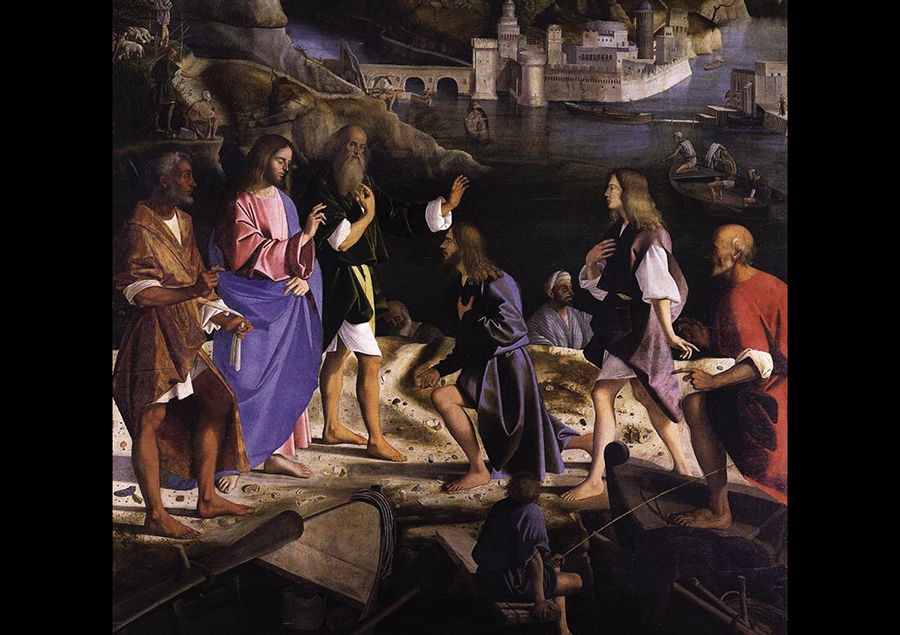Jon. 3:1-5,10 / Ps. 25:4-9 / 1 Cor. 7:29-31 / Mk. 1:14-20
The calling of the brothers in today’s Gospel evokes Elisha’s commissioning by the prophet Elijah (see 1 Kings 19:19-21).
As Elijah comes upon Elisha working on his family’s farm, so Jesus sees the brothers working by the seaside. And as Elisha left his mother and father to follow Elijah, so the brothers leave their father to come after Jesus.
Jesus’ promise — to make them “fishers of men” — evokes Israel’s deepest hopes. The prophet Jeremiah announced a new exodus in which God would send “many fishermen” to restore the Israelites from exile, as once he brought them out of slavery in Egypt (see Jeremiah 16:14-16).
By Jesus’ cross and resurrection, this new exodus has begun (see Luke 9:31). And the apostles are the first of a new people of God, the Church — a new family, based not on blood ties, but on belief in Jesus and a desire to do the Father’s will (see John 1:12-13; Matthew 12:46-50).
From now on, even our most important worldly concerns — family relations, occupations and possessions — must be judged in light of the Gospel. Paul says in today’s Epistle. The first word of Jesus’ Gospel — repent — means we must totally change our way of thinking and living, turning from evil, doing all for the love of God.
And we should be consoled by Nineveh’s repentance in today’s First Reading. Even the wicked Nineveh could repent at Jonah’s preaching. And in Jesus we have a greater than Jonah (see Matthew 12:41).
We have God come as our savior, to show sinners the way, as we sing in today’s Psalm.
This should give us hope — that loved ones who remain far from God will find compassion if they turn to him. But we, too, must continue along the path of repentance — striving daily to pattern our lives after his.

